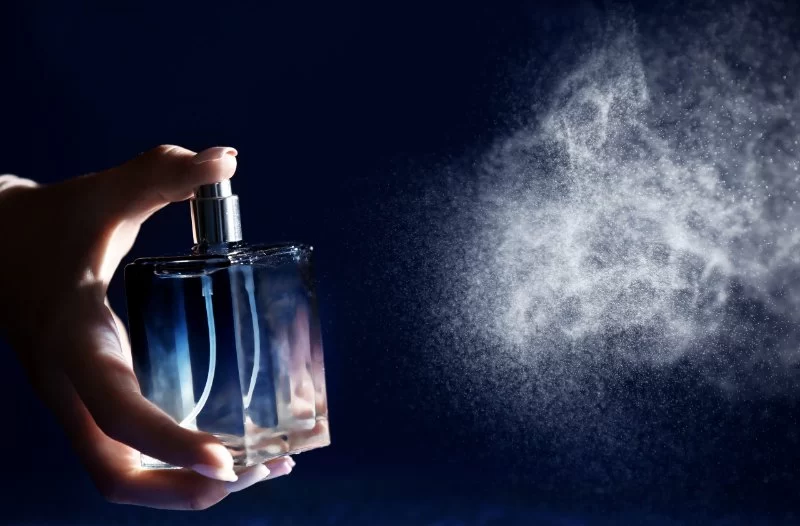- common-causes-of-perfume-like-taste - Common Causes Behind That “Perfume-Like” Taste in Food
- flavor-vs-fragrance-confusion - When Flavor Gets Confused with Fragrance
- can-health-or-diet-trigger-this - Can Health or Diet Trigger a Perfume-Like Taste?
- real-experiences-and-strange-taste-stories - Real Experiences: Strange Taste Stories That Made Us Rethink What We Eat
- what-to-do-when-everything-tastes-like-perfume - What to Do When Everything Tastes Like Perfume
- can-scent-affect-your-palate - Can Ambient Scents or Perfume Actually Affect Your Palate?
- find-scent-products-that-wont-overwhelm-you - Find Scent Products That Won’t Overwhelm Your Senses
1. Common Causes Behind That “Perfume-Like” Taste in Food
If you've ever asked yourself, why does everything taste like perfume, you’re not alone—and you're not imagining it. That floral, soapy, or artificially fragrant aftertaste can come from several everyday sources. Sometimes it’s the food itself, especially if it's flavored with ingredients like lavender, rose water, or artificial esters. Other times, it’s environmental—your perfume, room sprays, or even scented laundry detergent can subtly sneak into your sense of taste.
One overlooked culprit? Lip balm or lipstick. If it’s scented with vanilla, coconut, or floral oils, those scents can easily transfer onto utensils or glasses and affect what you taste.
2. When Flavor Gets Confused with Fragrance
Our brain processes scent and taste in tandem. That means when you smell something strong—like perfume—your taste receptors might interpret it as flavor, especially if the scent lingers in your environment. This is particularly true in enclosed spaces like cars, offices, or kitchens where air circulation is low.
Synthetic fragrance compounds, such as those in air fresheners or candles, can linger in the air and subtly coat the surfaces around you—including your dishes or silverware. So even if you're eating something neutral, your brain is already pre-loaded with the scent, causing your food to taste oddly floral or sweet.
3. Can Health or Diet Trigger a Perfume-Like Taste?
Absolutely. Sometimes, a sudden shift in how you perceive taste can be tied to health conditions or medications. Zinc deficiency, allergies, acid reflux, or certain antibiotics can distort taste perception and lead to a soap-like or perfumed flavor in everything you eat.
One woman shared on a wellness forum that after switching to a low-carb diet, everything began tasting “like potpourri.” It turned out she was overusing artificial sweeteners in her drinks, which, when combined with her high-protein meals, created a strange floral chemical taste.
If this issue persists or is accompanied by other symptoms, it’s a good idea to consult a medical professional. But in many cases, diet adjustments or eliminating highly scented surroundings may restore balance.
4. Real Experiences: Strange Taste Stories That Made Us Rethink What We Eat
On TikTok, a video went viral featuring a man who claimed his entire lunch “tasted like body spray.” As it turns out, his girlfriend had applied a generous amount of body mist before prepping their sandwiches—transfer of scent through hands and utensils was to blame. Another Redditor shared that their smoothie always tasted “like laundry soap” until they discovered their dishwasher pods were leaving residue behind.
These stories highlight how easily scents can become unintended flavor notes. They also show that sometimes, it’s not the food—it’s everything around it.
5. What to Do When Everything Tastes Like Perfume
First, evaluate your immediate environment. Are you wearing strong fragrance? Are you eating off dishes recently washed with heavily scented detergents? Have you recently changed your diet or started a new medication?
Second, reset your palate. Try eating simple, bland foods like rice or plain crackers for a day. Avoid artificial sweeteners or flavored beverages. Drink water with lemon to neutralize lingering flavors in your mouth.
If none of this works, it may be worth seeing a doctor or a dietitian—especially if the taste is persistent or metallic, as that could signal something deeper.
6. Can Ambient Scents or Perfume Actually Affect Your Palate?
Yes, especially if the scent is strong or persistent. Our olfactory senses are directly tied to our perception of flavor. That means that walking into a room filled with fragrance—be it a vanilla candle or a floral diffuser—can literally “flavor” your next bite. This is why restaurants avoid strong air scents and why wine tastings ban perfume entirely.
Even products like hair sprays, scented lotions, or deodorants can influence your eating experience. Some people are more sensitive than others, and for them, even subtle whiffs of lavender or citrus can make water taste off.
7. Find Scent Products That Won’t Overwhelm Your Senses
For those who love fragrance but don’t want it to interfere with taste, it’s all about choosing wisely. Opt for fragrance products with natural bases, subtle diffusion, or non-invasive ingredients. Skip overly synthetic or cloying room sprays if you’re about to dine.
Scent Snob offers curated fragrance reviews with a special focus on balance—meaning products that smell amazing but won’t linger on your plate or glass. Whether you're seeking a body mist that won’t overpower your lunch or a home scent that complements your kitchen, you’ll find expert recommendations tailored for scent-sensitive users.


0 comments